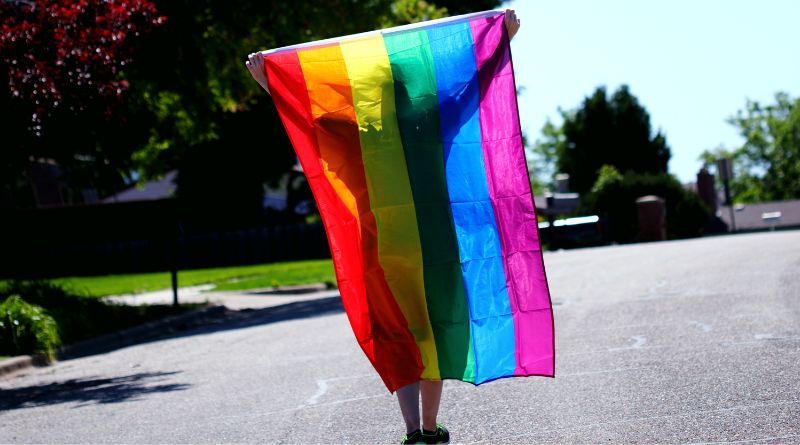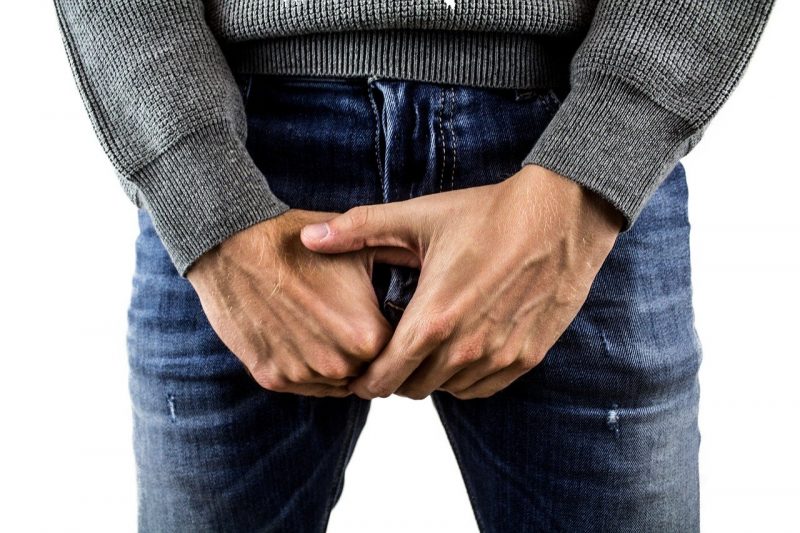Fumble writer, Samuel Kier, shares his story of growing up Christian and its effect on self-acceptance and coming out
My parents started going to church when I was eleven. I still remember the first Sunday I joined them. It was a sunny, autumnal morning. The music was modern and exciting, and I was told there was a God who loved me. I called myself a Christian soon after. Church was a safe place for me when I was bullied in high school. Going there meant I always had friends. I loved the music, the stories and the people. Away from church, I didn’t like myself very much. I had a secret. It was big, dirty, and went against everything I now believed in. From the moment I realised I liked boys in the way other boys liked girls, I put all my energy into repressing that desire.
“Terrified of losing everything, I prayed daily for God to make me straight.”
Church became the perfect defence for me: it proved that I was straight – how could I call myself a Christian and not be? I wholeheartedly refused to accept what my mind and my body told me every day. My church was not especially homophobic, but I knew there were stories in the Bible condemning same-sex relationships. I heard the whispers about queer people who had fallen away from the fold, unable to reconcile their faith with their sexuality. I didn’t want that to happen to me.
Terrified of losing everything, I prayed daily for God to make me straight. I spent hours online looking at Christian sites ‘explaining’ homosexuality. Aged fourteen, these websites made me believe a lot of terrible things about myself. I was sinful, and addicted to sex. I was a pervert. Looking for reassurance that God still loved me, I reached out to a pastor online. He told me that I was possessed by a demon, but that I could change and he would pray for God to heal me.
The pastor had confirmed my worst fears. I was an abomination. As long as I liked boys, nobody – not God, not my church, not my family – could love me, not really. Disgusted by myself and convinced that I was possessed, I began to have nightmares and suffer from sleep paralysis. Too scared to tell anyone what was going on, I lived in constant fear.
“I finally admitted to myself that I was queer. It was a big relief.”
After a long time, logic kicked in. I stopped believing I was possessed. I knew that to feel better, I had to distance myself from church. Still, my family’s faith and years of monumental fear had compounded. I was unable to admit who I was, to myself or anyone else. I went into total denial and became depressed. By seventeen, I felt like a different person. I was broken and had no hope for the future. A happy, normal life seemed totally impossible. Then, after some involvement with girls when I was eighteen, I stopped fighting. I met a boy. It wasn’t a love story by any stretch of the imagination; but it didn’t feel wrong, either. I finally admitted to myself that I was queer. It was a big relief.
After a while, I decided to tell some of my friends. They loved me and supported me, but I vowed to them that I would never tell my family. I was protecting them from the embarrassment of having to explain me to their church. I was protecting myself from further shame and fear, and I couldn’t live with the secret. After six months, I once again found myself in a dark place. One day, I realised I had a choice: between a life that was fully mine – a life in which I was truly myself – or no life at all. It was time to be free, no matter what the consequences.
“For me, that silence was traumatising.”
I don’t resent religion for how it made me feel growing up. I still believe that you can be queer and follow a faith. Spirituality is not defined by your sexuality. Your beliefs are personal. You are entitled to them as long as they are not harmful. You are also entitled to feel acceptance and love. I felt neither of these growing up in my church. That doesn’t mean it’s not possible. There are plenty of queer-friendly churches out there.
Sadly, many churches think that staying silent on queer issues is a way of bridging the disconnect between queer and non-queer members of the congregation; but silence, while not outwardly condemning anyone, can be deafening. Homosexuality was rarely mentioned in my church. It was never mentioned at my youth group or the Christian festival I went to each summer. For me, that silence was traumatising.
While others around me learned about acceptance and unconditional love, I fell into a black hole. I was a child, and I needed affirmation that I was okay, just as I was. I never got it. It saddens me that the first person I came out to was a total stranger. It troubles me that that person told me I was possessed, and that my coming out was not a mark of bravery, but evidence of how fearful and desperate I had become. The response I received only made me feel more afraid.
Since coming out to the people in my life who matter, I have learned more about what it means to be a queer male in the world today than any religion could have taught me. Religion did teach me some important lessons that every queer person should know.
“Most importantly, religion taught me to have faith in myself.”
Religion taught me about acceptance. As an adult, I know how meaningful it is to be accepted: not because of your physical appearance or the things you believe in, but simply because of who you are. Pure and open-minded acceptance can be incredible and everyone should experience it. All of us are worthy.
Religion taught me about hate. Even while preaching love, religion can be a breeding ground for hatred. It can be used to condone intolerance and fear; but that kind of hatred is nowhere to be found in most religious doctrines or text. Homophobia cannot be justified using moral commandments. It should always be seen for what it is – a hate crime.
Religion also taught me to appreciate love – what it’s like to be loved and feel love for others. As queer people, and especially as queer people growing up in religious communities, we often start our lives hating ourselves for the kind of love we want or need. Once we let go of fear, we are free to find love we never thought possible.
Religion taught me about faith – to be brave, to open up, to trust in others. You might be blown away by the kindness you are shown in return. Most importantly, religion taught me to have faith in myself. I am a stronger, better and braver person than I thought I was as a child. If you are kind to your spirit and have faith in who you are, you will begin to see your life for the blessing it is.
“To my surprise, my family loved me anyway.”
If you are queer and your family belongs to a religious community, life might seem impossible right now, but please listen to these words. People can be cruel, but they can also be kind. Love yourself for who you are. Be safe, take care of yourself, and do not let fear, intolerance or hatred define the person you become. You are brave, and strong. You will find acceptance and love. Just have faith.
I came out to my family when I was nineteen. Staring into the abyss, I sat down one day and wrote a letter. After sending it, I got into my car and drove away. I knew that everything was about to change. I was right – everything was going to change – but I was wrong about how. To my surprise, my family loved me anyway. They met my fear with acceptance. They proved the hateful words spoken over me years before wrong. Everything would soon be better. I just needed to believe in others, and in myself. I just needed to have faith.
Other support
- Do I have to come out?
- Coming out: 7 tips and suggestions
- YoungMinds – Coming out and mental health
- The Proud Trust – LGBT+ faith groups
Read more
Last Reviewed 26 July 2023
Image Credit: Alexander Grey via Pexels




